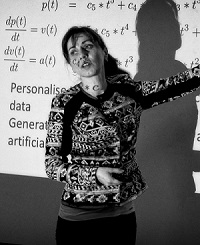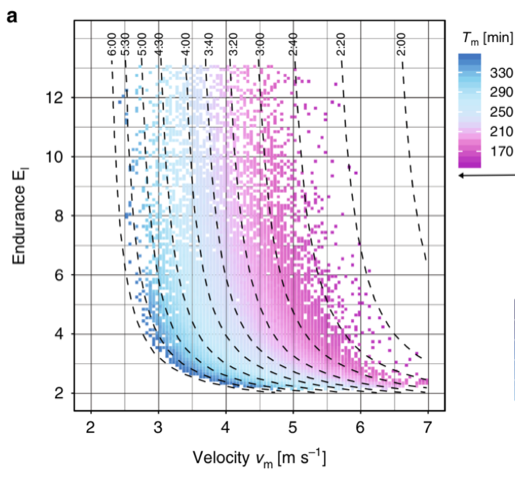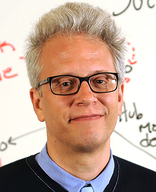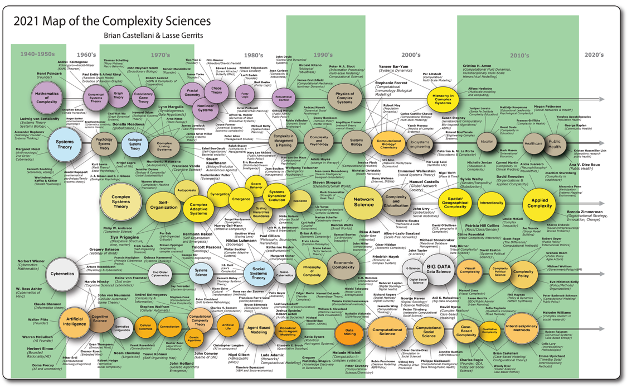
Full conferencesThe scientific committee has chosen to encourage this year presentations at the interface of several disciplinary fields in relation to the main topic of the 19th Edition of the international congress of ACAPS. ~~~~~~~~~~~~~~~~~~~~~~~~~~~~~~~~~~~~~~~~~~~~~~~~~~~~~~~~~~~~~~~~~~~~~~~~~~~~~~~~~~~ Krasimira Tsaneva-Atanasova
Krasimira Tsaneva-Atanasova is Professor of Mathematics for Healhcare in Exeter (UK). She earned her undergraduate and MSc degrees in mathematics at the University of Plovdiv, Bulgaria from 1991 until 1996. In September 2001 she started a PhD in applied mathematics at the University of Auckland, New Zealand. After completing her PhD in October 2004 Krasimira spent 18 months as a post-doctoral fellow at the Laboratory of Biological Modelling, National Institutes of Health, USA and another 15 months as a post-doctoral fellow at the Department of Mathematics and the Department of Biology at Ecole Normale Superieure in Paris, France. She joined the Department of Engineering Mathematics at the University of Bristol in October 2007 as a lecturer and was promoted to a Reader in Applied Mathematics in 2012. She moved to the College of Engineering, Mathematics and Physical Sciences, University of Exeter in July 2013 where she is now a Professor of Mathematics for Healthcare. Krasimira is the Director of the EPSRC Hub for Quantitative Modelling in Healthcare (EP/T017856/1, 2021-2025), Co-director of the University of Exeter ISSF TREE (a £4.8M initiative between UoE and the Wellcome Trust) and an Alan Turing Institute Fellow since October 2018. Sheh is also a Hans Fischer Senior Fellow (since April 2019) at the Technical University of Munich (TUM) Institute for Advanced Study (IAS), an Associate member (since February 2020) of the Bulgarian Academy of Sciences, Institute of Biophysics and Biomedical Engineering, section Bioinformatics and Mathematical Modelling and a Fellow of the Institute of Mathematics and its Applications (since April 2020). → https://emps.exeter.ac.uk/mathematics/staff/kt298/publications Plenary session: Friday 29 october at 10:00 AM ~~~~~~~~~~~~~~~~~~~~~~~~~~~~~~~~~~~~~~~~~~~~~~~~~~~~~~~~~~~~~~~~~~~~~~~~~~~~~~~~~~~ Juleen Zierath
Juleen Zierath is Professor of Clinical Integrative Physiology at Karolinska Institutet, Stockholm, and Head of the Section of Integrative Physiology at the Dept. of Molecular Medicine and Surgery and Dept. of Physiology and Pharmacology. She is Executive Director of the Novo Nordisk Foundation Center for Basic Metabolic Research at the University of Copenhagen, and appointed Professor of Integrative Physiology. Zierath’s research has provided the evidence for the physiological regulation of insulin signaling pathways in skeletal muscle, revealing key steps controlling glucose and lipid metabolism that are impaired in diabetic patients. Currently, she investigates the interactions between intrinsic biorhythms and external perturbations such as exercise and nutrient provision to identify novel translational strategies for prevention and treatment of metabolic disease. Zierath obtained her Ph.D. at Karolinska Institutet and completed a postdoctoral fellowship at Harvard Medical School. She is a member of the Royal Swedish Academy of Sciences and the Nobel Assembly. Zierath was chair of the Nobel Committee at Karolinska Institutet between 2013 and 2015 and is currently an adjunct member of this committee. Ms. Zierath was Chief Editor of Diabetologia, and was awarded the C. Bernard Prize at the European Association for the Study of Diabetes. → https://staff.ki.se/people/julzie Plenary session : thursday 28 october at 10:00 AM ~~~~~~~~~~~~~~~~~~~~~~~~~~~~~~~~~~~~~~~~~~~~~~~~~~~~~~~~~~~~~~~~~~~~~~~~~~~~~~~~~~~ Emig Thorsten
Emig Thorsten received his PhD in Theoretical Physics from the University of Cologne, Germany in 1998. In 1999 Emig came to CEA Saclay as a postdoctoral researcher to work with Jean-Philippe Bouchaud. Later he joined the group of Prof. Mehran Kardar at MIT, Cambridge, USA, to work on problems in statistical physics. In 2001 he stablished a junior research group at the University of Cologne, where he developed novel approaches to study fluctuation-induces forces on the nano-scale. This work, at the intersection of statistical physics, scattering theory, and classical electromagnetism, has revolutionized the both the conceptual framework in which fluctuation forces are considered and has made possible exact calculation of Casimir forces and related phenomena for many systems of experimental interest. In 2006 Emig joined CNRS at LPTMS at University Paris-Sud. Emig has spent sabbatical years at University Cologne and MIT as a Heisenberg fellow. From 2014 to 2018 he was appointed as senior research scientist at the MIT-CNRS international joined laboratory at MIT where he started a number of new interdisciplinary research activities, including climate physics and sport science. His research in sport science builds on the rapidly growing amount of available exercise data from wearable devices which hold a great potential for new quantitative research. While traditional lab studies are limited by a small sample of participants, big data collections make it possible to bring the laboratory to the road, and study millions of subjects under real world conditions. In his recent projects, Emig has developed a universal theoretical model for endurance performance and applied it to exercise data from thousands of runners, predicting marathon race times accurately and identify key predictive parameters of running performance. In another project, he has used methods from statistical physics to analyse fluctuations of the human heart beat during physical exercise. Plenary session: Friday 29 october at 2:00 PM ~~~~~~~~~~~~~~~~~~~~~~~~~~~~~~~~~~~~~~~~~~~~~~~~~~~~~~~~~~~~~~~~~~~~~~~~~~~~~~~~~~~ Nadia Bianchi-Berthouze Nadia Bianchi-Berthouze is a Full Professor in Affective Computing and Interaction at the Interaction Centre of the University College London (UCL). She received her PhD in Computer Science for Biomedicine from the University of the Studies of Milan, Italy. Her research focuses on designing technology that can sense the affective state of its users and use that information to tailor the interaction process. She has pioneered the field of Affective Computing and for more than a decade she has investigated body movement and more recently touch behaviour as means to recognize and measure the quality of the user experience in full-body computer games, physical rehabilitation and textile design. She also studies how full-body technology and body sensory feedback can be used to modulate people’s perception of themselves and of their capabilities to improve self-efficacy and copying capabilities. She has published more than 200 papers in Affective Computing, HCI, and Pattern Recognition. → https://uclic.ucl.ac.uk/people/nadia-berthouze Plenary session: thursday 28 october at 2:00 PM ~~~~~~~~~~~~~~~~~~~~~~~~~~~~~~~~~~~~~~~~~~~~~~~~~~~~~~~~~~~~~~~~~~~~~~~~~~~~~~~~~~~ Brian Castellani
Brian Castellani is presently a professor of sociology at Durham University, adjunct professor of psychiatry at Northeast Ohio Medical University, Fellow of the urham University Research methods Centre. He is also co-editor of the Routledge Complexity in Social Science series and co-editor of International Journal of Social Research Methodology. Trained as a sociologist, clinical psychologist and methodologist (statistics and computational social science), he has spent the past 10 years developing a new case-based, data mining approach to modelling complex social systems – called the SACS Toolkit – which he and his colleagues used to help researchers, policy makers and service providers address and improve complex public health issues such as community health and well-being, infrastructure and grid reliability, mental health and inequality, big data and data mining, and globalization and global civil society. They have also recently developed the COMPLEX-IT R-studio software app, which allows everyday users seamless access to high-powered techniques such as machine intelligence, neural nets and agent-based modelling to make better sense of the complex world(s) in which they live and work. → https://www.dur.ac.uk/research/directory/staff/?mode=staff&id=17428
Inaugural conference: Wednesday 27 october at 2:00 PM
|
| Online user: 1 | Privacy |

|






